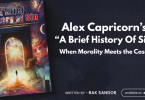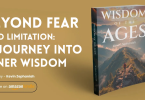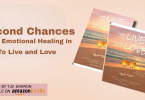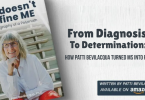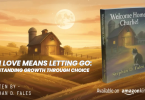In the age of digital learning and endless online content, it can be easy to get overwhelmed by the amount of educational resources out there.
However, not all books and study materials are created equal. For students, teachers, professionals, or lifelong learners, having access to top educational books and study materials can significantly enhance learning efficiency, knowledge retention, and exam performance.
This comprehensive guide breaks down the best resources across subjects such as science, math, writing, test prep, and more. Whether you’re in school or self-educating, these tools will help you reach your academic and intellectual goals.
For more: https://themontenegrotimes.com/
1. “How to Win at College” by Cal Newport

This isn’t your typical college success book. Cal Newport, a computer science professor and productivity expert, provides 75 surprising strategies to help students get ahead academically and socially. His advice ranges from maintaining a healthy daily routine to building relationships with professors and choosing the right extracurriculars.
- Why it’s one of the top educational books and study materials:
- Newport simplifies the college experience and helps students focus on what actually works, making it ideal for those entering higher education or wanting to upgrade their habits.
2. “Campbell Biology” by Lisa Urry, Michael Cain, Steven Wasserman, Peter Minorsky, and Jane Reece
A staple in AP and college-level biology courses, Campbell Biology offers an in-depth yet accessible dive into all aspects of life science—from cellular biology and genetics to ecosystems and evolution. It features colorful illustrations, concept summaries, and critical thinking questions at the end of each chapter.
- Why it stands out among top educational books and study materials:
- Its scientific rigor, paired with student-friendly explanations and visuals, makes it an essential resource for science learners.
3. “The Elements of Style” by William Strunk Jr. and E.B. White
First published in 1918, this small but mighty guide remains a gold standard for writing effectively. It offers practical rules of usage, principles of composition, and commonly misused expressions—all in a no-fluff format.
- Why it’s a must-have:
- Writing well is essential for success in almost any field. This book makes it simple to polish your prose, whether you’re writing essays, emails, or research papers.
4. “Barron’s SAT Study Guide”
For students aiming to enter college, a high SAT score is often crucial. Barron’s SAT Guide provides full-length practice tests, extensive vocabulary lists, and clear strategies to approach each section of the exam: Math, Reading, and Writing & Language.
- Why it’s considered one of the top educational books and study materials:
- Its comprehensive coverage and detailed explanations help students become familiar with the test format, reduce anxiety, and improve scores.
5. “Mathematics: A Very Short Introduction” by Timothy Gowers
This book doesn’t just teach math—it teaches the beauty of math. Gowers, a Fields Medal-winning mathematician, walks readers through deep mathematical concepts using simple language and real-world examples.
- Ideal for learners who are:
- Curious about how math shapes the world, struggling to grasp abstract ideas, or looking for a deeper understanding beyond formulas and equations.
6. “The Official Guide to the GRE General Test” by ETS
As the only prep guide written by the creators of the GRE, this book gives you insider knowledge. It features real exam questions, scoring guides, and strategies for each section: Verbal Reasoning, Quantitative Reasoning, and Analytical Writing.
- Why it earn a place among the top educational books and study materials?
- Because it offers the most accurate representation of the actual test and explains why certain answers are correct, giving you a huge edge.
7. “Thinking, Fast and Slow” by Daniel Kahneman
This book isn’t just for psychology students—it’s for anyone who wants to understand how humans think and make decisions. Kahneman, a Nobel Prize-winning economist and psychologist, introduces two modes of thinking: fast (intuitive) and slow (logical), and explores their impact on our choices.
- Perfect for:
- Students of economics, psychology, marketing, or philosophy—and anyone interested in boosting their critical thinking skills.
8. “Oxford Advanced Learner’s Dictionary” (10th Edition)
Language is the foundation of all learning, and this dictionary does more than just define words. It provides usage examples, collocations, idioms, pronunciation guides, and grammar notes—all tailored for learners of English.
- Why it belongs on this list:
- It’s especially useful for ESL students and anyone wanting to expand their academic or professional vocabulary.
9. “A Short History of Nearly Everything” by Bill Bryson

Tired of boring science textbooks? Bryson takes readers on a fascinating journey through the history of science—from the Big Bang to quantum mechanics—explained in layman’s terms. His storytelling style makes even the most complex concepts feel approachable.
- Who should read this:
- Students looking to develop a deeper appreciation for the world around them or anyone who struggles with traditional science books.
10. “Cracking the AP U.S. History Exam” by The Princeton Review
The APUSH exam is challenging, but this guide makes it manageable. It includes practice exams, historical timelines, important themes, and test-taking tips to help students identify exactly what the College Board is looking for.
- What makes it a top choice:
- Its focused review approach saves time and boosts confidence, helping students aim for top scores with less stress.
11. Khan Academy
While not a physical book, Khan Academy has revolutionized education by offering thousands of free video tutorials, interactive lessons, and practice exercises across subjects like math, science, humanities, and standardized test prep.
- Why it’s one of the most valuable study materials today:
- It’s accessible, user-friendly, and adapts to each learner’s pace—perfect for self-learners and students who need extra support.
You may also like to read these posts:
Top 15+ Study Hacks For Better Grades: Improve Your Focus
Best eBooks For Students | Smart Learning Guide 2025
Best Reading Lists For Beginners | Start Reading Today
Top 10 Time Management For Students: Balance School And Life
📚 How to Use Educational Books and Study Materials Effectively
Having the top educational books and study materials is one thing—knowing how to use them is another. Here are some strategies to get the most out of these powerful learning tools:
1. Set Clear Learning Goals
Before diving into a book or study guide, define what you hope to achieve. Are you preparing for an exam, improving your writing, or expanding your general knowledge? Your goal will help you focus and track your progress.
2. Create a Study Schedule
Break your reading or practice material into manageable chunks. For example, assign chapters or sections to each day or week. This helps prevent overwhelm and builds consistent study habits.
3. Use Active Reading Techniques
Highlight important points, jot down notes, and ask questions as you read. Engage with the material by summarizing what you’ve learned or teaching it to someone else.
4. Practice Regularly
For test prep books and online platforms like Khan Academy, regular practice is key. Take mock tests under timed conditions to simulate the real exam environment.
5. Combine Multiple Resources
Use a mix of resources. For instance, combine The Elements of Style with writing apps like Grammarly, or pair Campbell Biology with YouTube science animations. This strengthens your understanding from different angles.
🧾 Quick Comparison Table: Top Educational Books and Study Materials
| Title / Platform | Best For | Format | Key Benefit |
| How to Win at College – Cal Newport | College success strategies | Book | Practical life advice for students |
| Campbell Biology | AP & college biology | Textbook | In-depth coverage with visuals |
| The Elements of Style | Academic and professional writing | Book | Clear, concise writing tips |
| Barron’s SAT Study Guide | SAT exam preparation | Study guide | Full-length tests & strategies |
| Mathematics: A Very Short Introduction | Understanding math concepts | Book | Conceptual learning made easy |
| Official GRE Guide by ETS | GRE exam prep | Official guide | Real test questions from creators |
| Thinking, Fast and Slow – Daniel Kahneman | Critical thinking & psychology | Book | Insightful behavioral science concepts |
| Oxford Advanced Learner’s Dictionary | Vocabulary & language learning | Dictionary | Usage examples & grammar notes |
| A Short History of Nearly Everything – Bryson | General science knowledge | Book | Engaging, easy-to-read science storytelling |
| Cracking the AP U.S. History Exam – Princeton | APUSH exam preparation | Study guide | Thematic summaries and test-taking tips |
| Khan Academy | All-round subject support | Online | Free, interactive, and adaptive learning |
Final Words
Access to the top educational books and study materials can truly transform the way we learn and retain knowledge. Whether you’re studying for an important exam, improving your writing skills, exploring science, or just feeding your intellectual curiosity, choosing the right resources makes a significant difference.
These 11 resources offer a blend of traditional learning, exam preparation, critical thinking, and digital support—ensuring that there’s something for every type of learner.
Embrace these materials, and you’ll find your learning journey not only more productive but also much more enjoyable.



